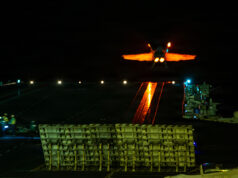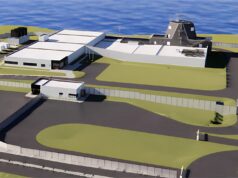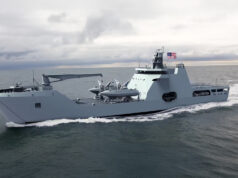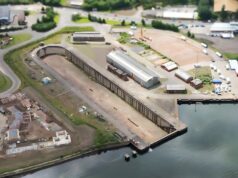A report by the Defence Committee, concludes that the UK Armed Forces have key capability and stockpile shortages and are losing personnel faster than they can recruit.
The report finds that Government will fail to achieve the desired level of high-intensity warfighting readiness without rapidly accelerating reforms to increase and sustain a thriving industrial base and to improve its “offer” to Service personnel.
Chair of the Defence Committee, Sir Jeremy Quin MP, said:
“Our Armed Services are a world-class fighting force. We are fortunate that they contain highly trained, skilled and experienced Service personnel. When undertaking their duties, they demonstrate immense bravery and flexibility, responding to a range of crises and threats worldwide without hesitation, never wavering in their commitment to protecting our nation. However, a steady, continuous drip of operations and ongoing commitments has meant the military is unable to devote sufficient training and resources to high-intensity warfighting. While able to deploy at short notice and to fulfil commitments, our inquiry found that readiness for all-out, prolonged war has received insufficient attention and needs intense ongoing focus.
“On top of this, the high tempo of operations and unrelenting pressure on our Services has led to a drop in retention, compounded by a period of low recruitment and difficulties introducing and maintaining capabilities, thereby creating a vicious cycle. It is welcome that 20,000 UK Forces will be deployed as part of the NATO Exercise Steadfast Defender 2024. It is through exercises such as these that we can better understand our readiness and train for effective working alongside our NATO Allies. This is the largest such exercise since the end of the Cold War: regular exercises of this nature will be invaluable and will need to be accommodated on an ongoing basis. Today’s report calls on Government to start making difficult choices: either invest fully in our military or recognise that proper prioritisation of warfighting will mean less availability for other tasks. We need to be strategic about the resources we have, including how to maintain and replenish stockpiles, and consider how to ensure that equipment – even after retirement – does not go to waste.
Importantly, the MOD must address its problems with recruitment and retention head on. We are calling on the MOD to publish the recommendations it plans on taking forward from recent reviews, including the Haythornthwaite Review, and provide Parliament with a detailed implementation plan. We are used to the Armed Forces consistently delivering whatever is asked of them, we need to ensure that in doing so we are not depriving them of the time, resources and training they need to fight and win a high-intensity prolonged war alongside our allies. Readiness is essential to provide the confidence we need and effective deterrence to our adversaries.”
The report is also highly critical of the lack of transparency over data.
“On 17 January 2024, the Minister for Defence Procurement refused to reveal to the House the expected size of the surface fleet (frigates and destroyers) in the years 2024–26, on the grounds that the detail of “forward availability forecasts” was not disclosed in order to “preserve the operational security of the Fleet”.43 However, that information had previously been publicly available—for instance, in November 2021, we were told that the intention was for HMS Glasgow to enter service at the point that HMS Westminster (the first of the ASW Type 23s to leave service) was retired.44 Snapshots of the status of the surface fleet (captured by open source journalists and commentators) are also widely available.45 We have produced a table at Annex 1 to demonstrate the types of information no longer available.
We reached out to NATO Allies to determine how their governments kept their legislatures informed about their armed forces readiness. The full list of responses can be found annexed to this Report. Many produce annual reports, some of which are unclassified (and therefore publicly available) containing details such as the percentage of deployable equipment in the different domains.46 Some governments provide committees responsible for scrutinising defence policy with additional information in confidence. For instance, as well as public annual reports on the state of defence, both the Finnish and German Defence Committees receive regular classified briefings on the operational readiness of their nation’s armed forces. The standing Committee for Defence of the Netherlands in the House of Representatives is currently considering a proposal from that country’s Ministry of Defence to increase the information provided to elected representatives on the efforts to improve operational readiness.47 In the US, as well as classified semi-annual reports to Congress, the Government Accountability Office also reports on military readiness issues and delivers public testimony to the Armed Services Committees (and their sub-Committees).
We originally requested on 1 February 2023 that the MOD provide witnesses for a public evidence session on the readiness of UK Armed Forces with a proposed date of 1 March. We were subsequently informed that the MOD would only be able to provide witnesses following the Budget on 15 March. Despite this, no date was ever proposed by the MOD. We then decided to hold a full inquiry—to hear from voices outside the MOD—which was launched on 23 April, asking all interested parties including the MOD to submit written evidence by 5 June. We did not receive written evidence from the MOD by the deadline, and began holding oral evidence sessions on 6 June, without the benefit of their perspective. Despite suggesting that the delay was down to the need to complete the Defence Command Paper Refresh (DCP23) which was published on 18 July, the MOD did not provide their written submission to the inquiry until 21 November—the day before the final evidence session with the Minister. Some of the information in the submission was out of date and it did not provide the detail requested, instead indicating that such detail could be provided in a closed private meeting. This closed meeting took place following the final evidence session and we want to recognise openly that it was both informative and useful. Further public written evidence was requested at the end of November. As at 30 January 2024, that information has still not arrived.
One of Parliament’s main roles is to examine and challenge the work of the Government. House of Commons Select Committees are appointed to fulfil that role in respect of different parts of Government.48 In 2019, the Liaison Committee concluded that the overall aim of Select Committees ought to be to “hold Ministers and Departments to account, and to investigate matters of public concern where there is a need for accountability to the public through Parliament”.49 Without the provision of necessary information, we are hampered in our ability to carry out this vital function.50“
As part of the conclusions and recommendations section, the Committee advises:
“The protection of sensitive information plays a vital role in the security of this country. However, the Ministry of Defence has become demonstrably less transparent over the past decade. The fact that the Minister and senior military personnel did not realise that information which is now classified was once widely available suggests that this trend towards greater secrecy has been either clandestine or unconscious. Other nations, facing very similar threats, provide significantly more information about readiness than the UK, both to the public and to relevant parliamentary committees.”













There has been a general push towards less secrecy in recent years, in recognition of the opportunity cost implied by failing to make information available to what later turn out to be relevant stakeholders. So- if MOD is bucking that trend specifically with respect to the information that could be scrutinised to judge it’s performance…
It’s always frustrated me that the MOD constantly uses the national security argument to keep things quiet, and that has routinely resulted in known issues not being discussed or addressed. If we ever go to war against a peer or near peer enemy you can guarantee their spy networks will have all the info on stores etc as it won’t be hard to buy, and so it’s only the general public of the UK that is kept in the dark. There needs to be a proper assessment of secrecy vs public interest to keep government accountable before anything is not disclosed.
Hi Steve,
A degree of openness, especially at the current time, might well encourage more people to take an interest in defence especially given the poor state of readiness and the lack of support given to our service men and women by the state.
Interestingly, I have just found a page on Yougov,co.uk on Military and Defence poll & surveys. There is a marked up tick in people who think the government is handling defence badly 46% against 31% who think they are doing a good job.
This secrecy is there to protect the ministers and government and has little if anything to do with national security. Indeed, I think more openness could improve national security.
Cheer CR
Wake up PM ⏰ 🙄
Does the UK government actually listen to this Defence Committee?
Of course not. The DSC have no real power, no more than the ISC do.
Hi Daniele,
No power, but I think they do have influence and it is beginning tell I think. Certainly some parts of the press are beginning to take note even if they do think Typhoons can take off from our carriers 😯😆
Also, I think people are starting to take note, check the Yougov.co.uk Military and Defence polls and surveys page…
Cheers CR
All they’re thinking about at all levels of government right now is how to reverse the looming election pasting they are going to get this year (or resign beforehand to avoid the humiliation of losing one’s constituency seat). Rishi Sunak’s doing his best to hold off calling the election for as long as possible while they try to turn things around. In the meantime, trivialities like finding the resources necessary to support our national security are ignored (at least, ignored more than usual)
If its hidden then its all ok, as the MOD see’s it, just hope it all goes away and no one notices what a mess the Armed forces are.
What’s shocking is the Civil Service part of the MoD is increasing in size, yet no one says a word. How can we be loosing numbers at the sharp end yet the civil service side is going up. 60k serving the MoD, up from 56k in 2016 that’s an 8% increase.
MoD objective is Politics
Well updates or not these politicians everywhere still seem clueless from were I stand about capability and readiness.